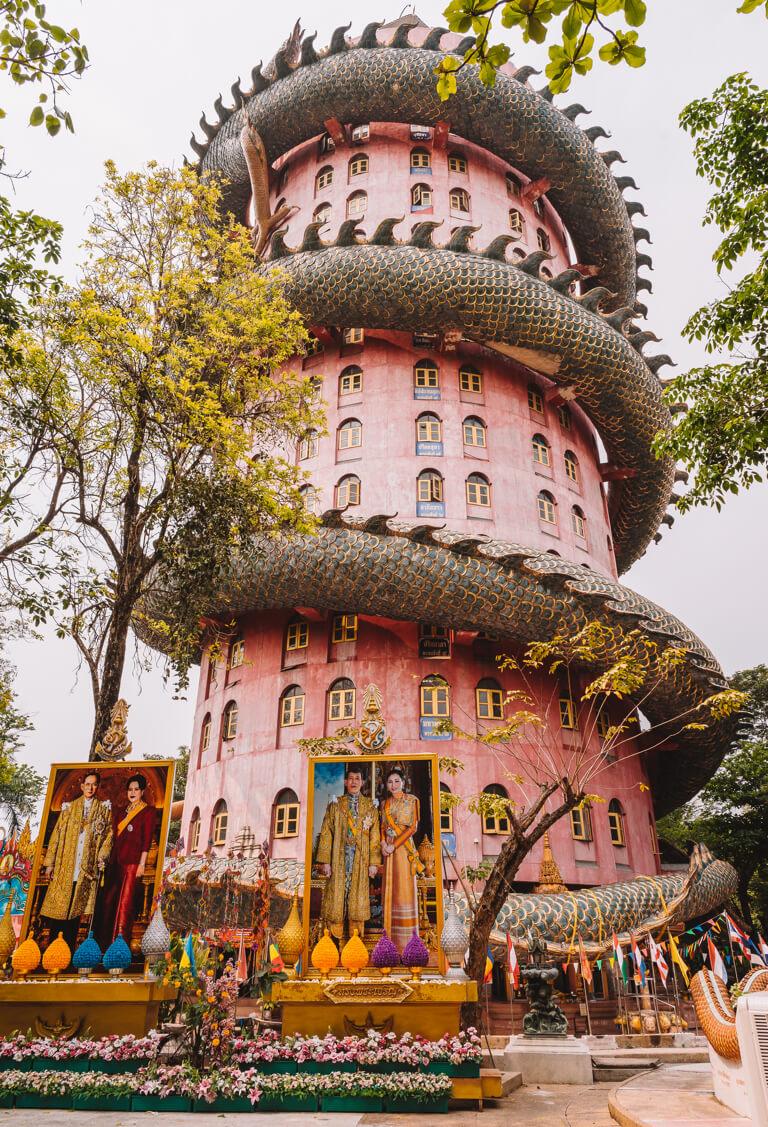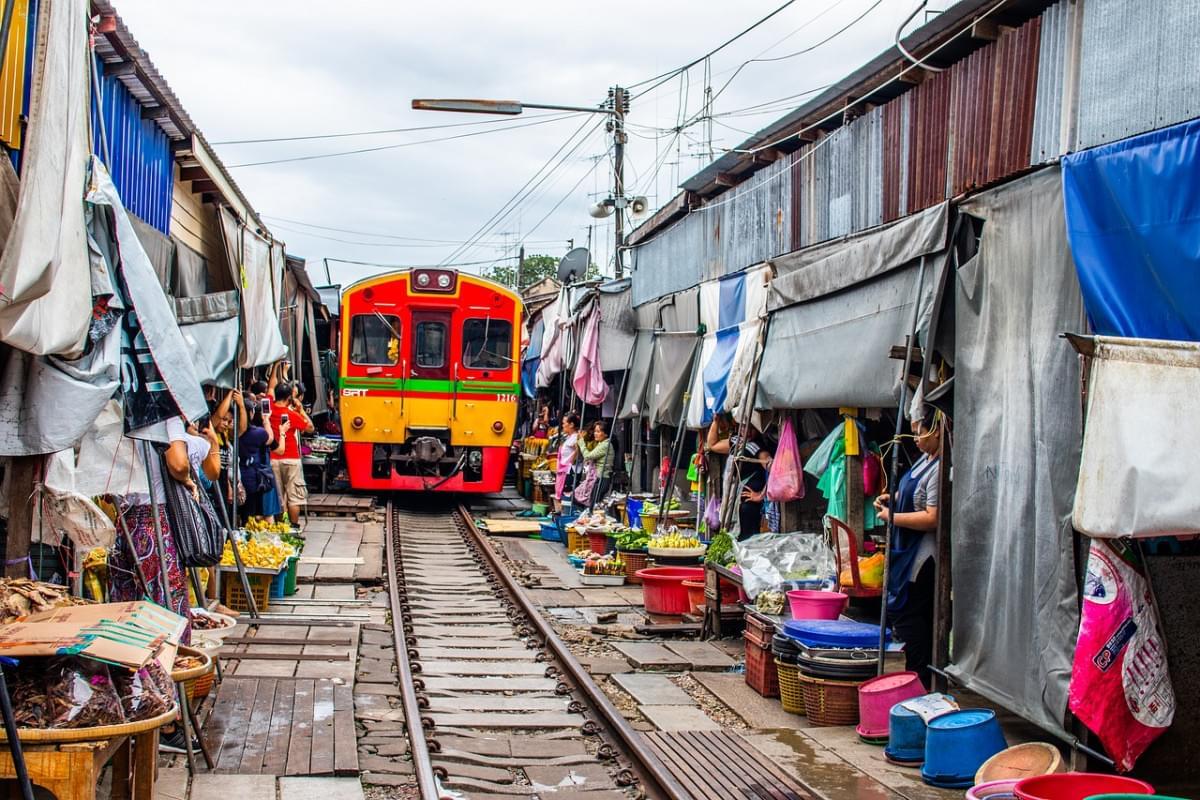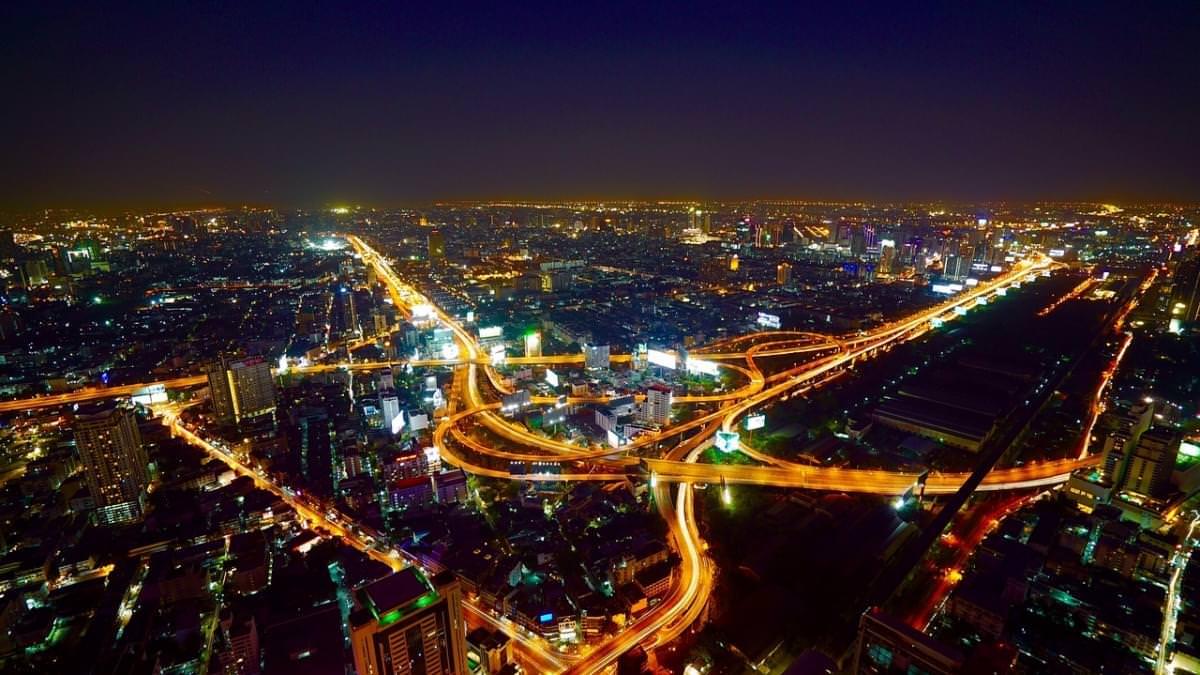
The northern region contains the heart of the country'scultural, natural and ruralsoul. The Golden Triangle is an explosion of famous temples, lush forests to discover on the backs of mammoth elephants and, above all, the area where the ethnic minorities live. The south is studded with heavenly beaches, one more beautiful than the other. Phuket, Koh Samui, Phi Phi Islands, Koh Samet... you'll be spoilt for choice! Here's what to know for a trip to Thailand!
Best period

From March to May is the'wet season', temperatures rise considerably as does the humidity. Despite the climate, tourism is always very active, thanks also to the famous'Thai Water Festival', an event that is always full of young people, and the Thai New Year in April.
For purely beach holidays, Phuket, Krabi and Khao Lak are perfect from November to May; while Costa Gulf, Ko Samui, Ko Phangan and Kho Tao are at their best from April to October.
May and October are the rainy months; it is, however, hot and the rains are not constant all day, occurring in the form of violent thunderstorms of short intensity. Although it is not the best weather-wise, just equip yourself with an umbrella and a k-way and enjoy Thailand at prices as low as 50%.
SEE ALSO: When to go to Thailand: climate, best time and months to avoid
Required documents
Passport with more than 12 months validity for multiple entry and at least 6 months for single entry.
Two passport-size photos, facing front, without sunglasses and with head uncovered.
Photocopy of the return ticket that does not occur after the expiry of the visa.
Exit tickets from the country with at least 2 entries and 2 exits to be used within 6 months if you have a multiple-entry or exit-only permit before your normal tourist visa expires.
Photocopy of a confirmed hotel reservation for the duration of your stay.
Compulsory visa: for stays up to 30 days you apply directly on arrival in Thailand (€30.00). Up to 60 days: must be requested before departure at the Consulate of Thailand (€35,00). Up to 6 months multi-entry: allows you to enter several times within a period of 6 months from the date of issue and, at each entry, allows you to stay in Thailand for a maximum of 60 days (€175.00).
It is essential to take out travel insurance that covers medical expenses, loss of luggage and/or documents, cancellation or reduction of stay.
International driving licence and helmet required for car or scooter rental.
How many days
Minimum duration of trip: at least 8 days
Recommended duration of trip: at least 12 days
How to dress and what to bring
Comfortable, light and breathable clothes, preferably cotton and natural fibres; light scarf for possible breezes, jumper or pullover always at hand for possible evening coolness and air-conditioned interiors at maximum. Beach equipment, sun hat, sun cream and sunglasses. Snorkelling equipment and anti-repellent.
Some heavy clothing for the evening if you are going to the north (e.g. Chiang Mai). Umbrella and k-way at all times.
Comfortable shoes that you can take off and put back on easily, as you are normally asked to take them off at various times (temples, private houses, massage centres...).
What to see
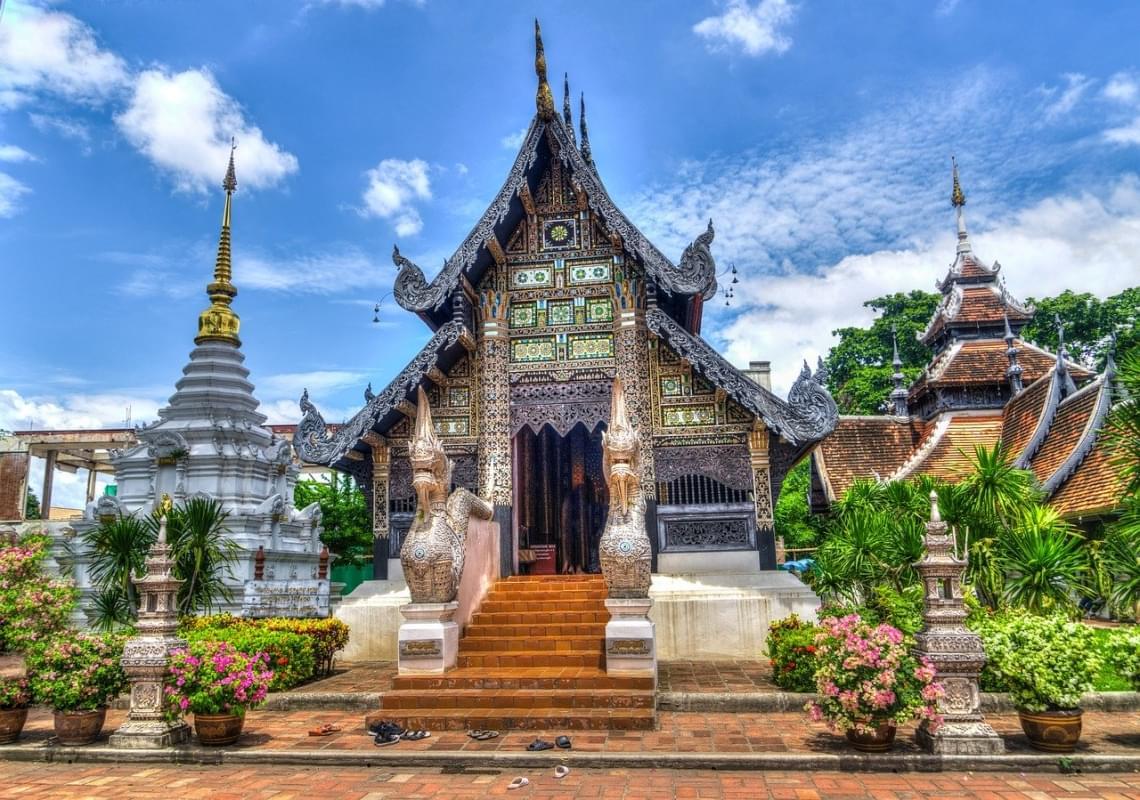
The first time you visit the country, at least two or three days should be devoted to Bangkok. Don't miss the Royal Palace where the revered Emerald Buddha is kept, the War Arun, Wat Bo with its gigantic statue of the reclining Buddha; not forgetting the nightlife to be spent in the colourful Chinatown and the lively Khao San Road. Moving south, you can choose between resorts where you can enjoy a relaxing beach holiday depending on the time of year you stay.
If you are lucky enough to return a second time to the Land of Smiles, the advice is to deepen your knowledge of the country's history and culture by thoroughly exploring the northern regions: Chiang Mai, where there are stupendous temples; Chiang Rai, home to the immortalised Wat Rong Khun temple; Ayutthaya, the ancient capital of the kingdom of Siam; and the historical park of Sukhothai, not forgetting a visit to some of the many ethnic minority villages.
If you are visiting the destination for the first time: Bangkok: Royal Palace, War Arun, Wat Bo, Chinatown, Kao San Road, South Sea
If you are returning to the destination: Chiang Mai, Chiang Rai, Ayutthaya, Sukhothai
SEE ALSO: Phi Phi Islands, Thailand: where they are, when to go and what to see
Getting around
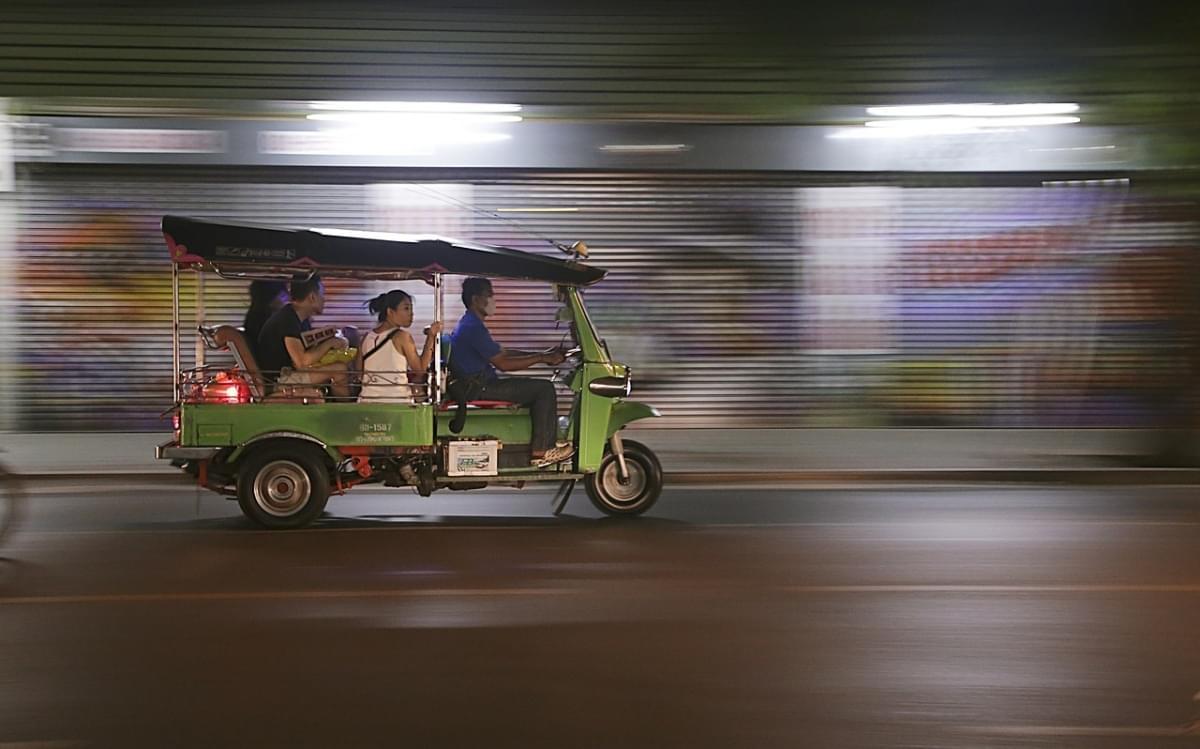
The entire territory is also connected by daily buses offering services such as TV, water, snacks and wi-fi; night buses offer reclining seats and blankets. Tickets can be bought directly at the various bus stations or online (Bangkok-Chiang Mai €30.00).
The railway line offers a good service and has similar prices and timings to the buses; however, its limitation is that it does not reach all the seaside resorts in the south.
Larger cities, such as Bangkok, are very busy and getting around within the metropolis is not always easy.
The SkyTrain, the elevated train, is very convenient (the cost of the ticket varies according to the route: from €0.45 to €1.70); the characteristic tuk-tuks and songthaws (pick-up trucks) glide with agility everywhere and allow you to experience the thrill of a fun, native experience (getting around Pukhet costs little more than €0.50).
Equipped with a taximeter, taxi meters are the perfect choice for travelling comfortably and without haggling.
It is also possible to rent cars and, in the more touristy centres, bikes and motorbikes.
What to book in advance
The intercontinental flight is certainly the first thing to book months in advance, especially if you plan to stay in the high season and want to find rates that are, as far as possible, fairly cheap.
Internal connections both by air and by train or bus should also be booked in advance.
In order to travel more peacefully and without worries, we recommend that you also book accommodation in advance, especially if you plan to visit the most popular and busy areas in the high season.
Where to stay
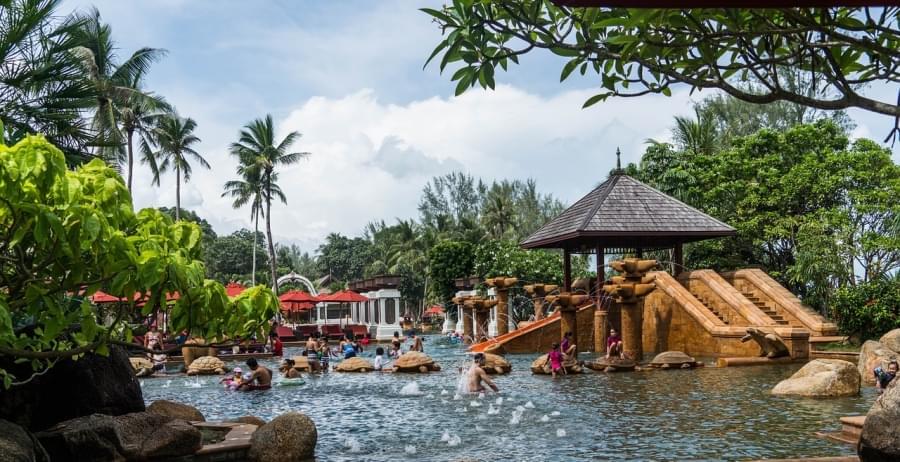
In any Thai resort you can find both top-notch luxury establishments equipped with every comfort, as well as simple, modest hotels and guesthouses, and even spartan hostels for a few euros a night.
In Bangkok, most of the facilities are luxury hotels often located on the top floors of the city's most exclusive skyscrapers, at prices that are unbelievable (€60.00).
However, there is also no shortage of more modest solutions that cost as much as a low-level pension in Italy (€30.00).
The general rule is that hotels on the mainland are on average cheaper than those on the sea or islands, which can reach prices of several hundred euro per night. In Phuket, for example, there are luxury resorts (often also with a private beach), which really cost a lot (€380.00!).
The advice for fully enjoying your holiday and getting to know its culture is to opt for good hotels, but without overdoing it.
Where to eat
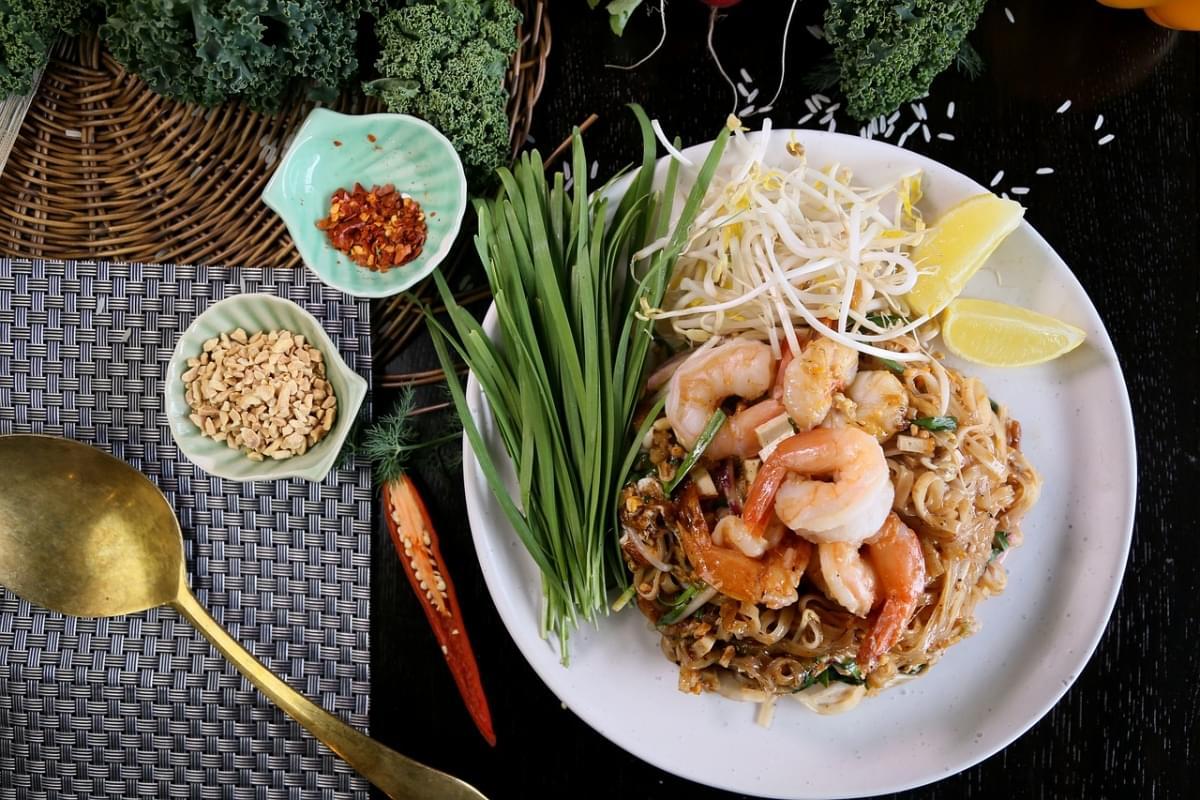
Street food and markets are the cheapest option where you can spend even a few cents. However, the hygiene factor must be considered.
Another cheap alternative are food courts. On the top floor of every shopping centre there are food courts: a kind of very cheap self-service with a focus on basic hygiene (dishes from €0.80 to €5.00).
The classic restaurants, both Thai and other nationalities, have slightly higher prices than the food courts, but still somewhat lower than European standards (€15.00). Much, however, is made by location; in the more touristy locations, it is not uncommon to find prices almost as high as ours.
On the coast, there are numerous fish restaurants on the beach that cook the fresh catch of the day at ridiculously low prices (e.g. lobster €10.00).
What it costs
Cost of flights and transfers: €800.00 per return flight + internal transfers
Accommodation cost: backpaper solutions €12.00 - mediocre accommodation €25.00 - very good hotels €70.00 - luxury and extra luxury over €300.00
Minimum daily budget for meals and attractions: considering a quick and frugal meal for lunch, a good restaurant meal for dinner and a couple of paid attractions, min €35.00 per person
How to pay
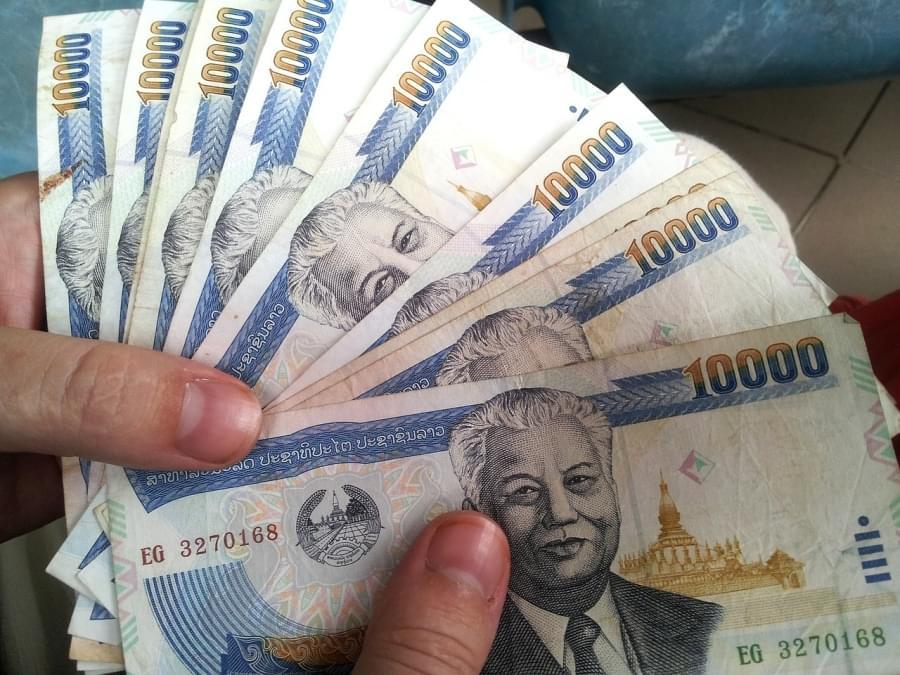
Practically everything is paid for in cash; in fact, there are many small places, markets, stalls and many'characteristic' spots in the country that require payment in cash.
In Italy it is impossible to change Euros into Baht. The suggestion is to change as little as possible at the airport (perhaps just enough to get to the city centre or your hotel) and instead make a more substantial exchange at authorised Change Money outlets.
SuperRich is the agency that gives the best exchange rate.
Alternatively, you can withdraw money directly from an ATM. Keep in mind that, in addition to the fees charged by your bank, ATMs chargea fixed fee to all withdrawals regardless of the amount withdrawn (150 or 200 bath equal to €4.30 and €5.70). Before leaving, ask your bank for all information to get a complete picture of the situation.
Credit cards should only be carried as a deposit. Mostly serve as a deposit for hotels, vehicle rentals or for purchases in shops considered to be luxury.
Security
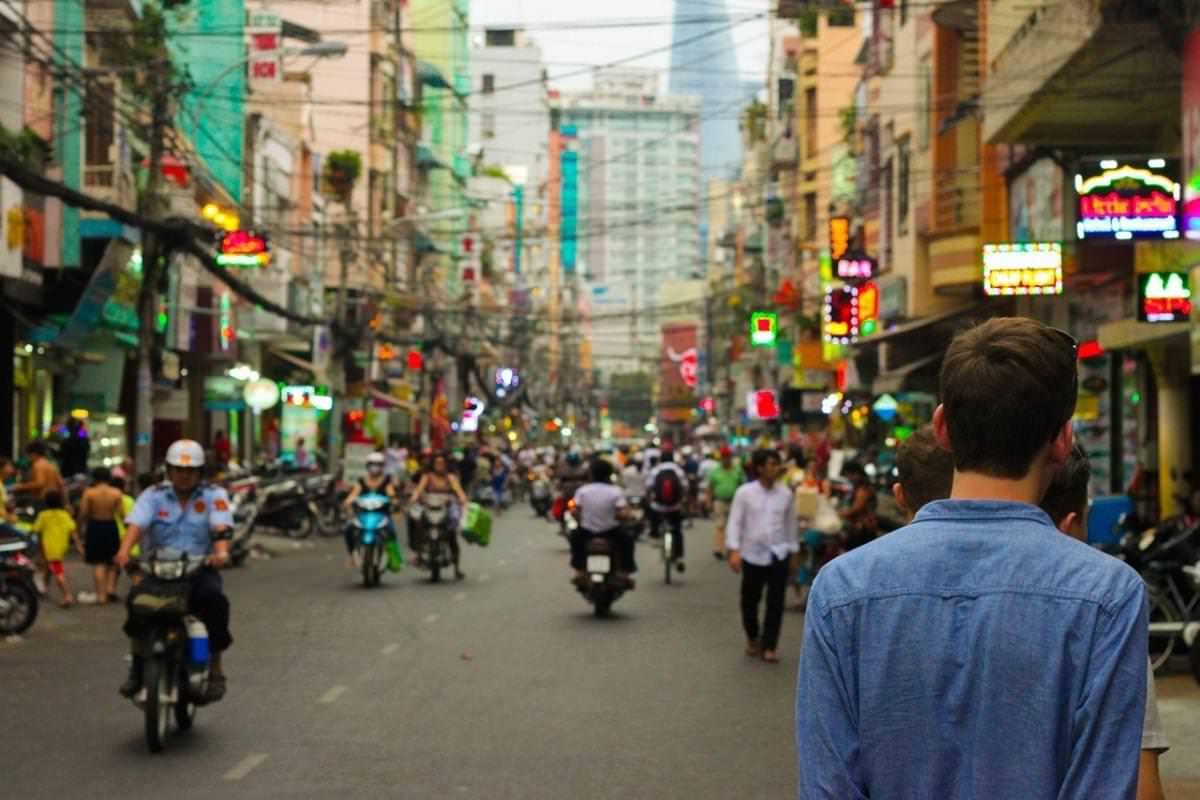
Do not accept drinks from strangers as they may contain sleeping pills to rob you once you have lost consciousness.
Never follow Thais who offer to guide you or who want to take you to some club, they may be malicious. The same goes for girls who will try to pick you up either inside or outside the most popular clubs. In most cases these are escorts or lady boys, but they may not necessarily be'decoys' designed to rob you.
During the rainy season, you may experience severe inconveniences or emergencies.
It is advisable to pay particular attention to any warnings or indications that local authorities may issue following possible earthquakes in areas at risk of earthquakes or tsunamis. Always follow the updates on the official Farnesina website.
Useful advice and rules of behaviour
Dress decently to visit the temples (no skimpy clothes, bare shoulders or shorts), take off your shoes and maintain a composed and respectful attitude.
Do not touch people's heads, not even a child's as a sign of affection. According to Buddhism, the head is the most sacred part of the body and the feet the most impure.
Never sit with your feet pointing at a sacred image. In temples one sits with crossed or'mermaid-like' legs. The feet are the impure part of the body; never point them in the direction of a Thai person or a Buddha statue.
Do not use the left hand to eat or pass objects. The left hand is in fact used for hygiene of the private parts.
At restaurants, if you are in a group, it is customary to bring one big plate to share among the guests, then everyone usually has their own plate of rice, which replaces our bread.
Never speak ill of the Royal Family, even in a broad sense. Such offences are punished by law and the penalties are very severe. The same applies to offences against religion.
It is a common custom to tip waiters, drivers and bellboys about 10% of the total.
Use the bargaining rule, except in supermarkets, bars, restaurants and shopping centres.
Never raise your voice in public, don't make a scene and don't argue, neither with each other nor with Thai people, because in the local culture the loss of control of oneself and one's emotions is considered very serious.
To greet, do not hold out your hand as you do in Italy but join your palms together (as if praying) and make a small bow with your head.
Never exchange effusions in public such as kissing, caressing and so on. In Thailand it is considered very scandalous.
As of 31 January 2018, smoking has been banned on 24 of Thailand's best-known beaches frequented by tourists. Violators will be punished with 1 year imprisonment and/or 100,000 Baht fine (€2,700).
